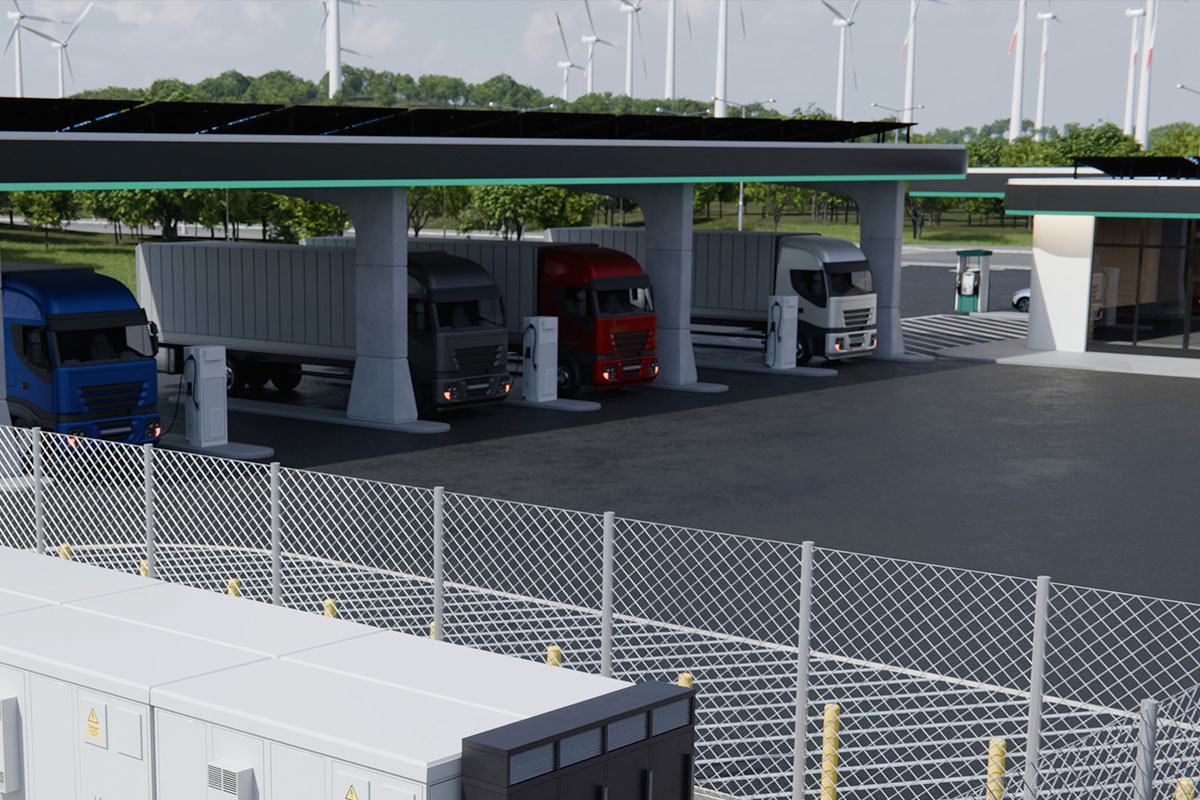Om Shankar, Vice President & General Manager at Konect, believes that intelligent power distribution and on-site storage will be key to unlocking new revenue streams and long-term profitability for fuel stations, as he explains.
The demand for public EV charging is growing rapidly across the UK and Europe, and we see a future where the fuel retail network plays a key role in the EV transition. However, integrating high-powered chargers into existing infrastructure presents complex energy management challenges. Not having a strategic approach to energy distribution, grid limitations, rising costs, and operational inefficiencies could impact profitability.
The key to overcoming these challenges lies in smart energy management. By adopting intelligent energy solutions, fuel retailers can not only meet the growing demand for EV charging but also drive cost efficiencies, enhance reliability, enable additional revenue streams, and position themselves as leaders in the evolving world of electrified transport.
The energy challenge
The increasing adoption of EVs is placing growing pressure on power grids. By 2035, EV charging is expected to account for 14% of Europe’s total energy consumption, leading to significant demand surges that existing grid infrastructure may struggle to support. This poses a particular challenge for fuel retailers, many of whom are already operating close to their energy limits.
One of the biggest obstacles is grid capacity. Many forecourts lack the necessary connections to support multiple high-speed chargers, resulting in costly and time-consuming upgrade requirements. Even when grid capacity is available, fluctuating electricity prices and demand charges – penalties imposed by utility providers for exceeding contracted energy limits – can make energy costs unpredictable and difficult to manage.
Reliability is another pressing concern. Forecourts must offer a stress-free charging experience, yet without smart energy solutions, surges in demand could lead to overloading, causing disruptions or outages. If customers arrive expecting fast and reliable charging only to find stations out of service due to power constraints, both reputation and revenue will suffer.
A ‘smart energy ecosystem’ for fuel retailers
To future-proof their operations, fuel retailers must move beyond traditional energy management strategies and embrace a ‘smart energy ecosystem’. This approach integrates advanced technologies to optimise power distribution, enhance efficiency, and ensure seamless EV charging services.
One crucial component of this ecosystem is energy management software, which dynamically allocates power across all energy assets in the forecourt. This ensures energy is distributed efficiently without exceeding the site’s capacity, preventing overloading while maintaining high charger uptime.
On-site battery storage plays a vital role in balancing energy supply and demand. By storing energy during off-peak hours when electricity prices are lower, forecourts can reduce reliance on expensive grid power during peak times. Batteries also serve as a crucial backup, maintaining operations during power fluctuations or outages.
Business benefits of smart energy management
Investing in this smart energy ecosystem isn’t just about overcoming technical challenges – it’s a strategic decision that delivers tangible financial and operational benefits:
- Cost savings are a significant advantage, and research shows that return on investment is a key priority for fuel retailers when adopting new technology. By optimising energy usage and reducing reliance on peak-hour grid electricity, retailers can lower operating costs. Energy storage solutions and intelligent load balancing help avoid costly demand charges, creating a more predictable cost structure.
- Revenue opportunities also expand with this approach. Fuel retailers can sell stored electricity back to the grid during high-demand periods. Additionally, by offering competitively priced, reliable EV charging services, businesses can attract a broader customer base, increasing footfall and boosting associated sales.
- Operational efficiency improves as well. Advanced monitoring systems enable proactive maintenance, reducing downtime and ensuring a smooth charging experience for customers. A well-managed energy infrastructure minimises disruptions, builds customer trust, and encourages repeat visits.
After all of this, sustainability goals become more achievable. Many fuel retailers face increasing pressure to align with carbon reduction initiatives. Integrating renewable energy sources, such as solar panels, into a smart energy ecosystem can further reduce reliance on fossil fuels, helping businesses meet regulatory requirements while enhancing their environmental credentials.
Investing in the future of mobility – and your business
Transitioning to a smart energy model requires careful planning. Fuel retailers must conduct energy demand forecasting to assess both current and future site needs. Understanding peak demand periods and usage patterns allows for more precise infrastructure planning.
Working with experienced partners in the smart energy space can help retailers deploy tailored solutions that maximise efficiency while minimising disruption. They will be aware of the various government grants and tax incentives that are available to support businesses investing in energy-efficient technologies, helping offset upfront costs associated with upgrading energy systems.
As energy storage technology advances and costs decline, smart energy ecosystems are becoming increasingly viable for fuel retailers. Exploring the options now will secure long-term profitability, strengthen customer loyalty, and support a more sustainable transport system.


